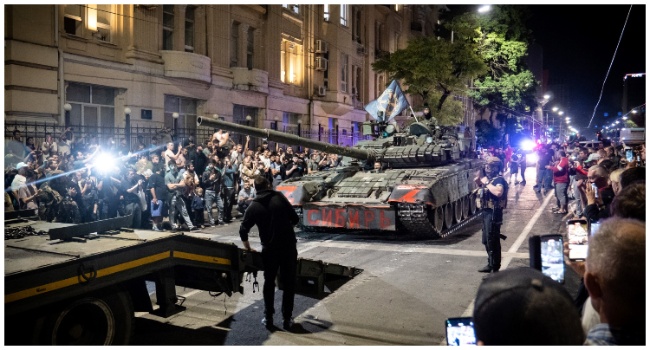The Wagner fighters, who had initiated a rebellion against Russia’s top brass and were en route to Moscow, were reported to be leaving the southern Voronezh region on Sunday, according to the local governor. This development came after the group’s leader, Yevgeny Prigozhin, reached an agreement to depart Russia for Belarus, a Moscow-allied country.
The specifics of what transpired in the Voronezh region on Saturday remain largely unknown, although the Russian government stated that the army had been deployed and conducted “combat” operations. Meanwhile, a significant and unexplained fire erupted at an oil depot in the city during the mutiny.
Voronezh Governor Alexander Gusev announced that the movement of Wagner units through the region was coming to an end. He reassured that the process was proceeding smoothly and without any incidents. The travel restrictions imposed during the operation against the mutiny would be lifted once the situation was completely resolved.
Gusev expressed gratitude to the residents for their endurance, steadfastness, and rationality, and assured them that information regarding compensation for any damages would be provided.
In other southern regions of Russia and along the route to Moscow, where the fighters had intended to reach, authorities began lifting the restrictions imposed during the dramatic rebellion. In southern Rostov-on-Don, where Wagner had seized an army headquarters, normal operations resumed at train and bus stations, and road restrictions were lifted, as confirmed by local authorities on Sunday.
However, in Moscow, a “counter-terrorist operation regime” was still in effect, indicating that heightened security measures remained in place.










